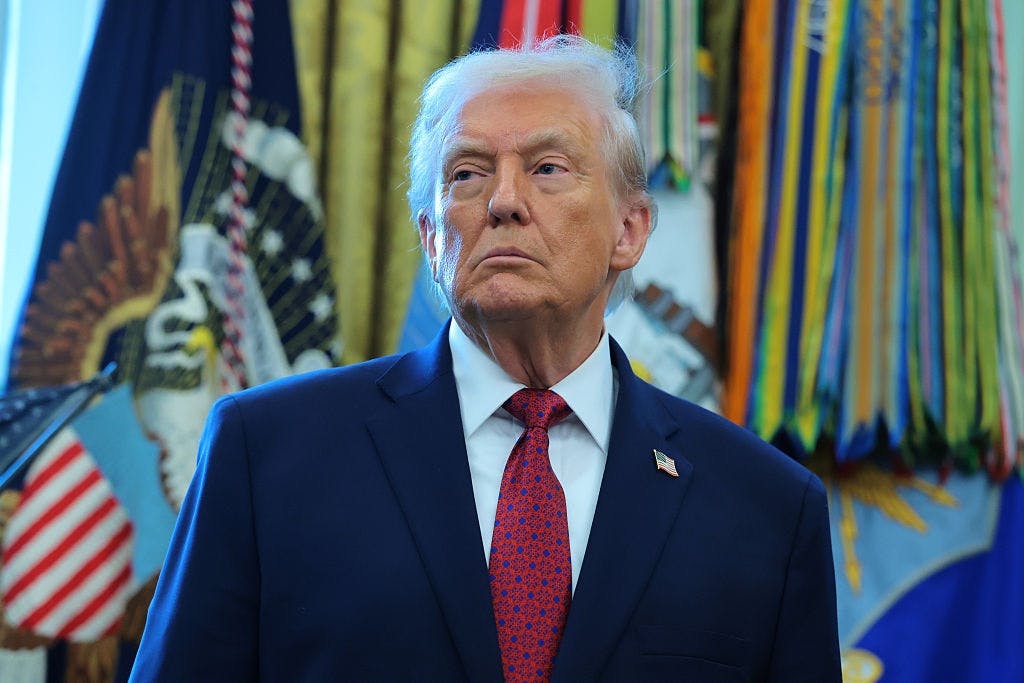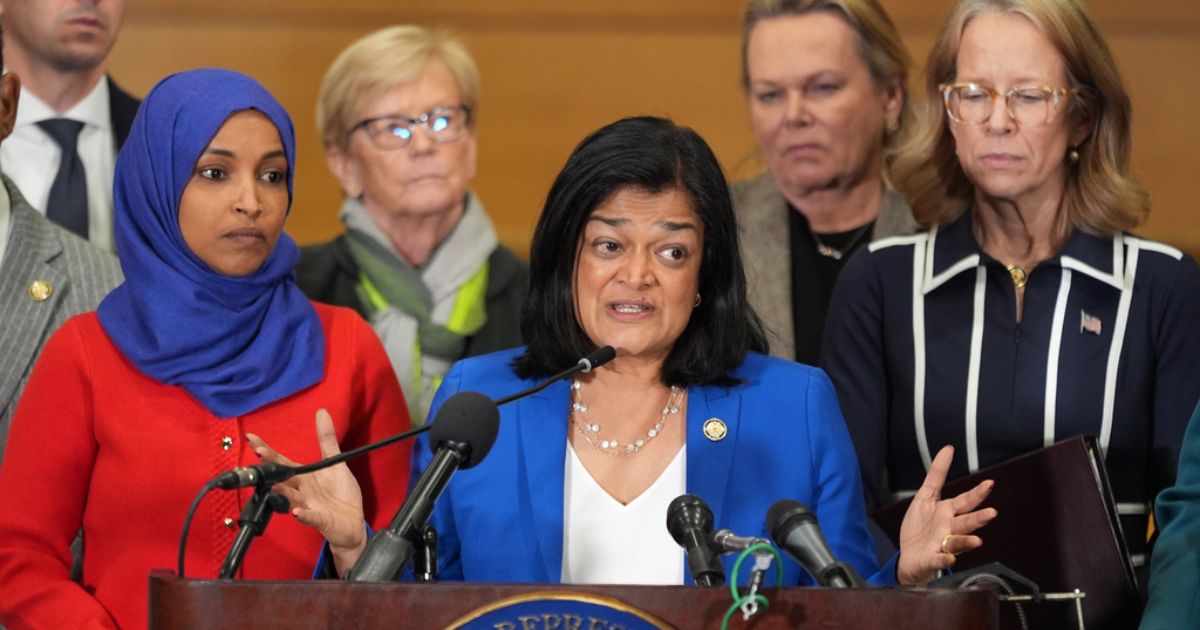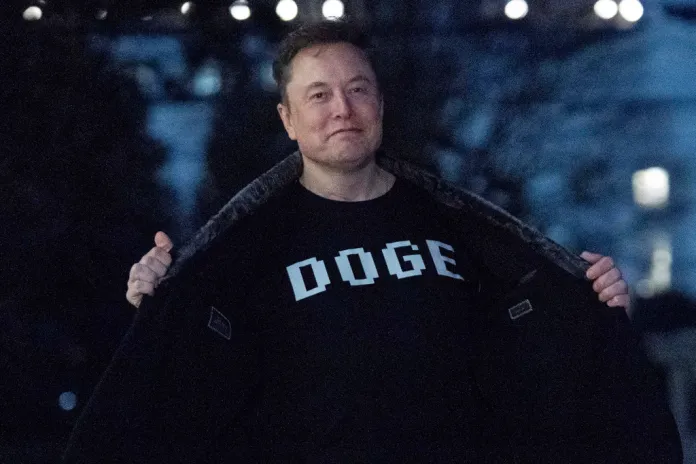DOGE Can’t Reduce Spending Until Washington Fixes Entitlements
The article discusses the inefficacy of the department of Government Efficiency (DOGE) led by Elon Musk in meaningfully reducing federal spending. A recent Wall Street Journal analysis shows that federal spending has increased by $154 billion sence the current administration took office, despite DOGE claiming to have enacted $150 billion in cuts. the rise in expenditure is largely attributed to mandatory programs such as Social Security, Medicare, and Medicaid, which have grown significantly this year due to factors like an influx of beneficiaries and rising costs.
The analysis highlights that mandatory spending constitutes approximately 73% of all federal expenditure, making it arduous for DOGE to curtail costs without Congressional action. With projections indicating that spending on these programs will continue to escalate, any attempts to control discretionary spending may prove insufficient in addressing the larger fiscal issues at hand.
The article argues for a necessary dialog about controlling mandatory spending and the need for shared sacrifices among all Americans to achieve lasting federal budgeting. it emphasizes the urgency of confronting the country’s spending problem before it exacerbates further.
Think Elon Musk and his colleagues with the putative Department of Government Efficiency (DOGE) have helped meaningfully reduce federal spending? Thus far, at least, think again:
A Wall Street Journal analysis of daily financial statements issued by the Treasury Department found government spending since the inauguration is $154 billion more than in the same period in 2024 during the administration of former President Joe Biden. DOGE claims [spending] cuts of $150 billion so far, but the Journal analysis found those efforts have yet to affect the bottom line.
One main reason why federal spending has increased so far this year, despite DOGE’s efforts, has to do with the quote attributed to Willie Sutton about why he robbed banks. In its work to date, DOGE has yet to target its efforts at where the real money is in the federal budget.
Sources of Spending Growth
Why has spending continued to grow, despite the most prominent and public action in decades (if ever) to reduce the size and scope of the federal government? The Journal analysis makes clear the root causes.
Social Security spending has grown by $32.7 billion compared to last year, “driven mainly by nearly 1.3 million new beneficiaries … and a mandated 2.5% cost-of-living adjustment.” Medicare and Medicaid spending has grown by $29 billion since Trump took office; “increased enrollments and rising health care costs are helping fuel this growth.” Interest costs have risen by $25.5 billion compared to the same period in 2024, due largely to “rising interest rates and a growing national debt.”
Spending in some areas — for instance, by the U.S. Agency for International Development, the Transportation Security Administration, and the Department of Education — has declined compared to last year, according to the Journal analysis. In other areas, most notably payments for federal salaries, spending has increased in the short term but will likely decline in the long term, as buyouts and deferred retirement plans take effect in the coming months.
It’s the Entitlements
With Social Security, Medicare, Medicaid, and interest payments rising by $87.2 billion this year compared to 2024 levels, it’s easy to understand how and why DOGE’s efforts would get swamped by this spending. The Journal noted that mandatory spending programs — including payments on the federal debt, Social Security, Medicare, Medicaid, Obamacare subsidies, food stamps, and agriculture programs — comprise nearly three-quarters (73 percent) of all federal spending.
These mandatory programs all operate on autopilot, meaning DOGE cannot truly restrain their growth absent action from Congress. Moreover, most of the current and projected future growth in federal spending comes via these mandatory programs.
Last June, the Congressional Budget Office (CBO) noted that “outlays for Social Security and Medicare account for more than half” the projected increase in federal spending over the next decade: “By 2034, outlays for Social Security, the major health care programs [i.e., Medicare, Medicaid, and Obamacare] and interest account for 68 percent of projected spending, 10 percentage points more than the share projected for 2024.” And CBO’s assessment last summer that Social Security, health care entitlements, and interest would comprise more than two-thirds of the federal budget within a decade came before it raised 10-year projections for Medicaid spending by another $817 billion earlier this year.
Go Where the Money Is
The federal government should absolutely cancel costly subscriptions and all other manner of wasteful, and in some cases outright fraudulent, spending. But the Journal analysis, like CBO’s warnings before it, demonstrate that these efforts will barely make a dent in the nation’s fiscal problems given the growth of mandatory spending. No number of canceled Politico subscriptions or even layoffs of federal bureaucrats can overcome programs that have grown by $87.2 billion in the first three months of 2025 alone.
In an ideal world, the efforts by DOGE to get discretionary spending under control will build a greater public consensus for making the tough decisions to right-size mandatory spending programs like Social Security and Medicare. Hopefully, a few years from now, President Trump or a successor can go to the country and say, “We cut all the fat out of the federal budget that we could — but we can’t get Washington’s house in order without shared sacrifice on the part of all Americans.”
Based on the sheer and undeniable logic of math, that conversation with the American people will need to happen. Here’s hoping it happens sooner rather than later, and that politicians finally come clean with Americans that the nation has been spending much more than it can afford.
Chris Jacobs is founder and CEO of Juniper Research Group and author of the book “The Case Against Single Payer.” He is on Twitter: @chrisjacobsHC.
" Conservative News Daily does not always share or support the views and opinions expressed here; they are just those of the writer."




